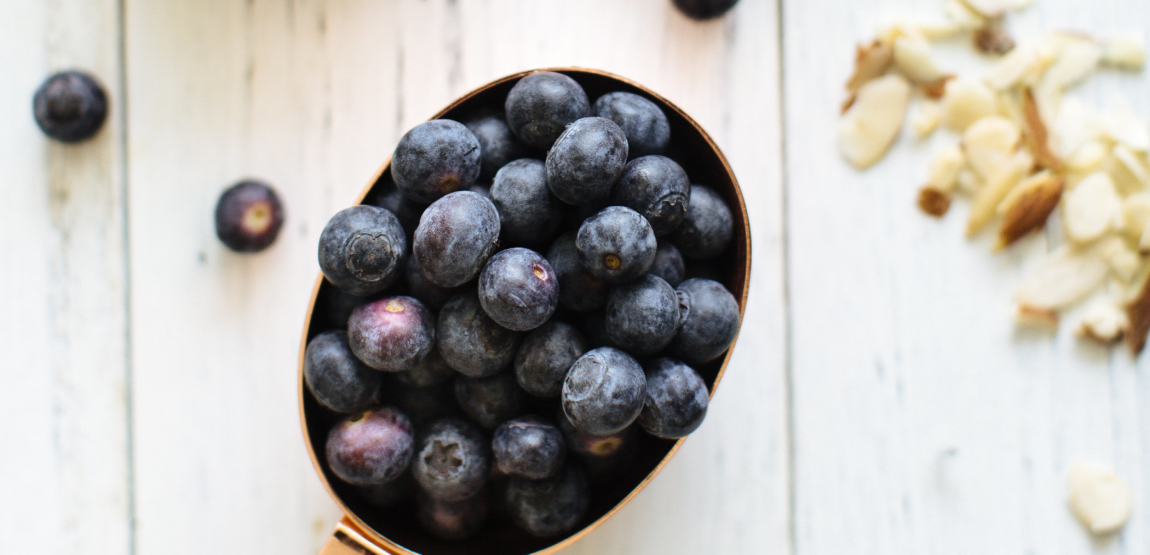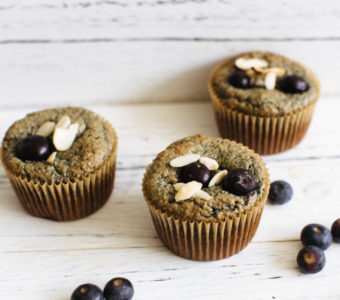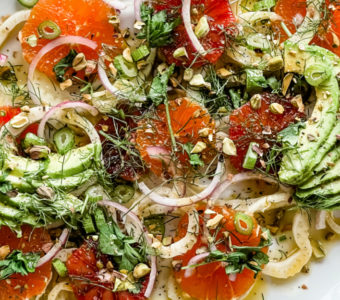- Wellness
Brain Boosting Blueberry Vanilla Almond Muffins
cook / prep 1 hr 30 mins

More than two-thirds of your brain is made of fat. 90% of the membranes that make-up neurons (the cells in your brain that transmit signals) are made of an omega-3 fatty acid, called docosahexaenoic acid (DHA)[1]. DHA plays a role in regulating inflammation and has been found to support not only fetal brain development, but a decrease in cognitive decline, dementia and Alzheimer’s disease [2].
Nourish Rx: Try eating the following omega-3 rich foods.
That’s right, chocolate is good for your brain!
In order to get the most bang for your health buck, try sticking with dark chocolate that’s over 70% cacao, doesn’t have too many additives, and is fair trade or organic.
Flavonoids are phytonutrients (chemicals found in plants) that have anti-inflammatory and antioxidant superpowers. Particularly in brain health, flavonoids are neuroprotective and support learning, memory and cognitive function [3]. Resveratrol is the flavonoid found in grapes, which gives red wine its reputation for being a “superfood.” Other flavonoids include anthocyanidins, which have antioxidant benefits and also give berries and other fruits their rich blue, red and purple colors[4,5]. And my personal favorite, epicatechin, is the main flavonoid found in cacao [6]. That’s right, chocolate is good for your brain! Side note: Not all chocolate is created equal. In order to get the most bang for your health buck, try sticking with dark chocolate that’s over 70% cacao, doesn’t have too many additives, and is fair trade or organic.
Nourish Rx:
A happy gut = a happy, healthy brain. Research has shown that over 90% of our neurotransmitters are made in our gut [7]. In addition, our microbiome plays a role in regulating inflammation. Certain strains of good bacteria can suppress inflammatory chemicals, helping to decrease the risk for many chronic inflammatory conditions, such as Alzheimer’s. The microbiome also protects the lining of our intestines. This is important in preventing leaky gut–essentially the spilling of toxins into our bloodstream that can ultimately find their way to our brains [8]. We also now know that our microbiome can be influenced by the foods we eat in as little as 24 hours.
Nourish Rx: In order to keep your microbiome healthy and happy, eat fiber-rich foods, limit processed foods and sugar, and eat your pre- and probiotics.

cook / prep 1 hr 30 mins

cook / prep